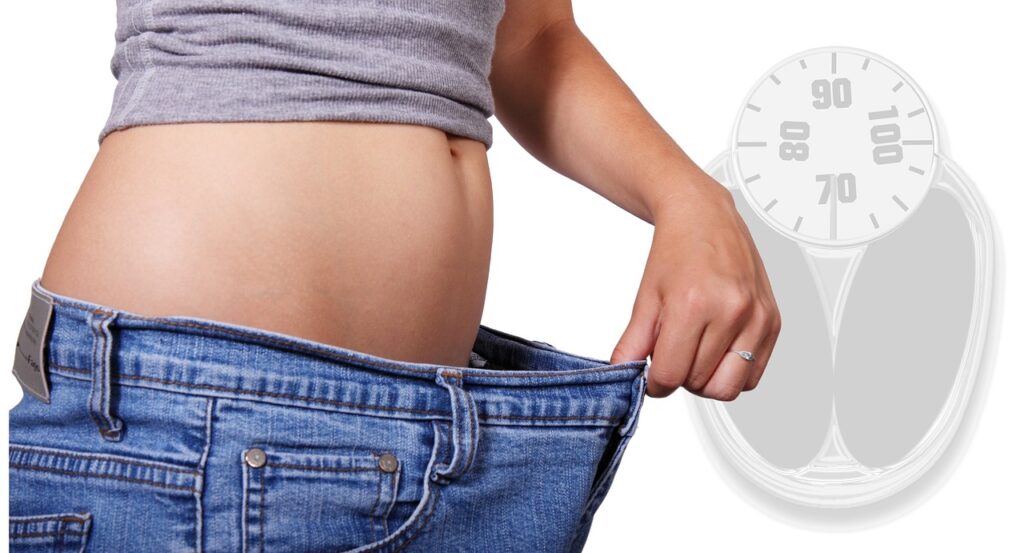Table of Contents
Introduction to the Importance of Measuring Progress Beyond the Scale
The scale is often seen as the ultimate tool for measuring progress in weight loss or fitness journeys. However, it’s important to recognize that there are many other ways to track your progress and success beyond just pounds lost.
While it may be tempting to focus solely on what the scale says, this can lead to frustration and discouragement if you hit a plateau or don’t see immediate results. By incorporating different methods of tracking progress, you’ll have a more comprehensive view of how far you’ve come and be able celebrate all types of victories along the way.
Additionally, focusing only on body weight ignores other important factors that contribute to overall health such as muscle mass, body composition, strength gains, flexibility improvements and mental wellbeing. By expanding our measurement criteria we allow ourselves greater rewards for our efforts.
This doesn’t mean that weighing yourself isn’t valuable – but rather it should be one piece in an overarching plan when assessing any transformational journey. It’s equally important not overly obsess about every decimal point change in number, it can cause unnecessary stress which could ultimately impact mental health negatively.
Tracking Body Composition: Why Weight Isn’t Everything
In many cases, the number on the scale can be an unreliable indicator of progress. This is because body weight fluctuates for a variety of reasons unrelated to actual fat loss or muscle gain. For example, water retention and hormonal changes can cause significant shifts in weight from day to day.
For this reason, tracking body composition – that is, measuring the percentage of body fat versus lean mass – can be a more accurate way to assess progress over time. High levels of body fat have been linked to various health problems including heart disease and diabetes, so reducing overall body fat percentages has broad-reaching benefits beyond simply looking better in clothes.
One method commonly used for measuring body composition is skinfold caliper testing. During this test, a trained professional takes measurements at specific points on your skin using special equipment and enters them into an algorithm which then calculates your total percentage of body fat.
Another highly accurate method is dual-energy X-ray absorptiometry (DEXA) scanning. This type of scan uses low-dose radiation to generate images that reveal bone density as well as precise measurements of both fat and lean tissue throughout the entire body.
Beyond Numbers: The Emotional Impact
The process of tracking progress beyond just weighing yourself also has some surprising emotional benefits. When you’re working hard towards improving your fitness level or losing weight but see no immediate change in what registers when you step onto the scale it’s easy become discouraged or even demotivated from continuing with good habits such as healthy eating or regular exercise routines.
Tracking changes related solely with numbers e.g., pounds lost often ignore other critical factors that contribute positively toward one’s wellbeing like stamina increase or how much faster they were able run while feeling less exhausted than before..
Many individuals who start a healthy lifestyle journey have set number goals to hit which can be daunting and in many ways detrimental. The scale, for example, may show minimal changes but the individual may find that their energy levels are incredibly higher than before or they have more mental clarity throughout the day.
Tracking body composition with measuring tapes or photos will allow you to see physical changes over time and provide inspiration as there is visible progress even if it might not be immediately apparent by just stepping on a scale.
Physical Performance: Using Fitness Goals as a Measure of Progress
When it comes to measuring progress towards fitness goals, physical performance can be a much more reliable indicator than numbers on a scale. Instead of focusing solely on your weight or BMI, tracking your improvements in athletic abilities and stamina can give you a better idea of how far you’ve come since beginning your journey.
Not only is physical fitness an excellent health marker, but setting performance-based goals also has mental benefits. Knowing that you’re capable of running faster or lifting heavier weights boosts confidence and provides motivation to keep pushing forward.
A great way to measure progress through physical performance is by using the SMART goal-setting method. This includes setting goals that are Specific, Measurable, Attainable, Relevant and Time-bound. For example:
Specific:
“I want to run a 5 km race without stopping.”
Measurable:
The distance and time required for completion.
Attainable:
A realistic goal based on current levels of fitness
Relevant:
The goal should align with your overall intention to improve overall health
Time-bound:
Determination needs establishing exactly when this will be achieved
The act of achieving these smaller milestones keeps us motivated while paving the road toward our ultimate larger goals that we wish to reach eventually
If running isn’t really your forte there are many other ways outside endurance training such as resistance exercises like bodyweight workouts which increase muscle strength over-time consequently making regular life activities easier.. By setting small goals like performing x amount push-ups or holding impossible yoga pose for 60 seconds – provide measurable markers illustrating progress made throughout improving strength regarding muscular development as well as flexibility in joints accompanied by improved balance.The possibilities are endless when it comes down adapting some form exercise which you enjoy while improving your overall health.
Physical performance is much more than just aesthetics. It has a strong relationship with how our inside system works, and that includes mental wellness as well. So, instead of aiming for the number on the scale or body size focus on setting specific fitness goals it’ll keep you motivated and allow to track progress made throughout improved athletic abilities.
Mental Health Benefits and Emotional Changes
Measuring progress beyond the scale involves looking at more than just physical changes. It’s essential to consider how making healthy lifestyle choices can positively impact our mental health and emotional well-being.
Studies have shown that regular exercise, a balanced diet, and adequate sleep can improve mood, reduce symptoms of depression and anxiety, boost self-esteem, and increase overall life satisfaction. The release of endorphins during exercise triggers positive feelings in the body that can help combat stress levels.
Incorporating mindfulness practices such as meditation or yoga into your routine can also lead to significant improvements in mental health. These activities promote relaxation techniques to reduce stress levels while improving focus and awareness.
Focusing on non-scale victories such as improved energy levels or a better night’s sleep rather than obsessing over numbers on the scale or clothing size is an essential part of measuring progress holistically. Taking note of these achievements boosts confidence while encouraging long-term behavioral change for optimal results.
In summary,
evaluating success beyond weight loss not only provides us with a better understanding of our overall wellness but offers insight into areas where we need improvement outside transforming physique.
Healthy Habits and Lifestyle Changes
While it’s important to track your progress in measurable ways, it’s also important to focus on the behavioral changes that can help you achieve those goals. Lifestyle changes and healthy habits are essential for long-term success in achieving optimal health.
One of the most important lifestyle changes is making physical activity a habitual part of daily life. Whether you enjoy running, swimming or lifting weights—or prefer less strenuous activities like yoga or Pilates—regular exercise will make a world of difference in how you feel both physically and mentally.
Beyond exercising regularly, eating healthy is another crucial aspect of maintaining an overall healthy lifestyle. This doesn’t necessarily mean giving up all your favorite foods—it simply means making conscious decisions about what you put into your body and striving to consume more nutrient-dense whole foods rather than processed junk food.
Sleep hygiene is another critical factor when it comes to improving quality of life. Getting enough sleep not only helps prevent chronic diseases but also supports mental clarity necessary for productivity throughout the day.
Here are some other examples:
Mindfulness practice
: Incorporating mindfulness practices such as meditation and deep breathing exercises can help reduce stress levels that might otherwise impede consistent progress towards reaching fitness goals.
Daily water intake
: Ensuring adequate hydration through regular water consumption helps with digestion, aids toxin elimination from the body, improves circulation and skin elasticity among many other benefits. These small habits may be overlooked when measuring progress beyond weight loss but they have significant positive impacts on our lives.
Celebrating Non-Scale Victories and Setting Realistic Expectations
When trying to improve your overall health, it’s easy to become obsessed with the number on the scale. However, weight can vary from day-to-day due to factors like hydration and hormones which makes measuring progress through a scale relatively tricky. In fact, there are many non-scale victories that you should celebrate as well.
Celebrating Non-Scale Victories:
You should acknowledge other positive changes in your body beyond the numbers on the scale such as:
- Fitting into old clothes better or needing to buy smaller sizes
- Increased energy levels
- Better sleep quality
- Clearer skin and stronger hair and nails
- Increase in strength and endurance during workouts
All of these achievements show that you’re making progress towards living a healthier lifestyle! Make sure you take time out regularly for yourself so that you can reflect on how far you have come – this will help motivate yourself and keep going!
Setting Realistic Expectations:
Keep in mind that losing weight is not always linear – meaning it does not happen at an equal rate every week – nor is it instant. Approach each day with achievable goals instead of expecting quick results.
It’s important to note too much change at once could lead backfire resulting in quitting sooner than expected. Set manageable goals weekly or bi-weekly while gradually increasing intensity over time until habits form naturally.




